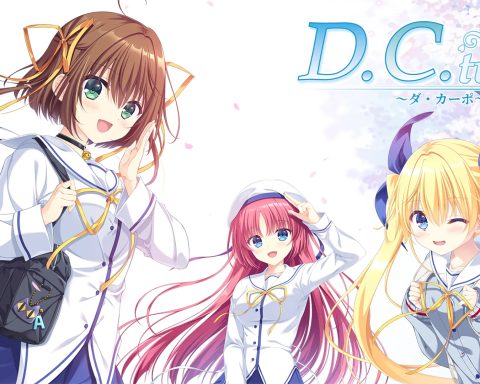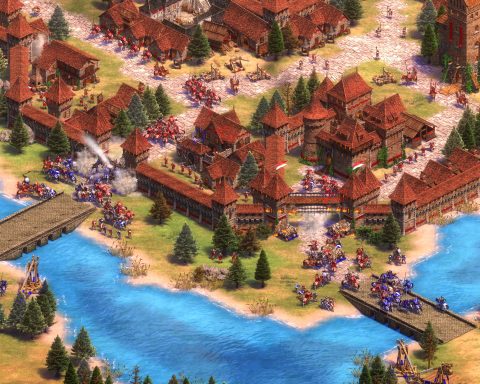Chances are, if you’ve got a games console or a PC, you’ve been given free games. Nintendo gave early adopters of the 3DS console 20 free games. Sony’s given away 10 free games twice (once as an apology for the massive hack, and at E3 as a gift for PS Plus subscribers). Now EA is giving Origin owners a free game in celebration of the services’ one-year anniversary.
This is a very bad idea, and the content owners are shooting themselves in the foot for the practice.
That’s not to say I don’t like free games – I’m human, too, but looking at this practice from a behavioural perspective, it essentially amounts to game content producers commoditising their most valuable asset to the point where it no longer holds any value for the consumer.
We’ve seen a similar problem happen with retailers. In the early days, a “sale” was a special event. By discounting inventory that retailers wanted to move out of the shop (making room for new products – fashion has always been the forerunner when it comes to discounting), the retailer was able to achieve a triple result – bring people into the store (often discounting happens as a loss leader practice), clear out inventory (unsold inventory is a liability at retail), and boost cash flow (every retailer needs that).
When used cleverly, a sale (or giving away free product) is a clever marketing strategy, there’s no doubt about that. But something happened that retailers haven’t been able to account for. Consumers, being consumers, learned to wait for sales so they could pick up bargains. Eventually, the only people who can be relied on to buy products at full price at the start of the product cycle is the early adopters – a small group of people typically unable to, in themselves, hit the necessary sales figures.
So retailers found themselves having to hold sales more and more often – walk into a retail outlet now and there’s sales going on virtually every day of the year. Products then became commoditised – the only point of differentiation was the price – and retailers ended up earning no margin on the products. Because sales have become the standard, no one gets to put the prices back up now because the customer drop-off is steep, so everyone has to struggle in what is an essentially an unsustainable practice.
The same thing is happening in the games industry – both the retail arm, and for the publishers themselves. If it wasn’t enough that Apple’s iOS store has managed to lower price expectations to the point where a $20 game is “expensive,” consumers are now getting free games thrown at them from every angle. It’s having a deflationary impact on consumer buying expectations.
Of course, free games are not really sustainable unless backed by a very compelling microtransaction proposition but consumers don’t really care about that, and the content producers don’t really have a choice as long as their competitors are happy to undercut them. And so this is why they’re all looking to DLC packs and subscription models like PSN to shore up the loss in revenue from game sales.
For some, it will work. The really big guys can absorb the costs of transitioning away from a boxed product sale to a services sale – from the idea that people buy a game for full price and own it for life to the idea that people pay a smaller amount each month to access a wide range of content. That’s where Sony and Microsoft are heading, and that’s what Onlive and Gaikai are pioneering. But it’s a trend that is going to cause some more casualties along the way – the content holders who can’t make that transition quickly enough are going to hit a wall where they’re producing premium products and pricing them fairly as such, but then undersell because what is a fair price for a product is no longer what consumers are willing to pay.
The free games are going to be a catalyst for some serious rationalisation yet as they represent an entire industry devaluing itself. It’s a pity, because as much as we like the free stuff, we’d actually all be happier and supported better if we were keeping these content producers lucrative enough to be able to make strategic investments.








"
When used cleverly, a sale (or giving away free product) is a clever marketing strategy, there’s no doubt about that."
Say, Humble Bundle?
Yup, exactly. Humble Bundle is an ingenious marketing trick that is more about spreading goodwill and building the indie brands, then giving people stuff cheap because they won't buy it otherwise.
I'm not sure if I agree or disagree, to be honest. What I do know is that the Nintendo and first Sony giveaways were reasonably successful attempts at calming consumers and/or restoring "loyalty" (despite the then-detractors that are always par for the course).
Nintendo could afford to throw around a few 20 year old games and some 6-12 year old ones if it meant convincing the current consumers that their investment was not a waste. While yes, these games could sell bucket-loads on the Virtual Console, Nintendo still has more than enough to keep the first-party hits coming. The NES games will be available to everyone and considering the relatively small userbase at that point, I don't see it being too bad a decision in terms of profit. The GBA games will remain exclusive to ambassadors and give early adopters a sense of pride since they own exclusive games only available to the first few million buyers of the system.
In Sony's case, giving away several full retail games for the PSN was more of a gamble, but still very tactical. When the personal information of over 70 million people is compromised and the situation gets grossly exaggerated by the mainstream media and word of mouth, you're going to want to keep people happy. As much as some moaned about the selection, I suspect people would have been a lot more upset if Sony gave nothing.
The recent PlayStation Plus deal and the EA games seem superfluous to me, though. I don't see it being as useful in terms of financials or keeping people happy long-term. A giveaway for the sake of a giveaway? Even though you can't play the Sony games when your subscription expires, which should be an incentive to subscribe again, people will finish them and those that were already subscribed will reap the rewards for nothing.
I guess my stance is that freebies are good if they don't damage a company's potential gain and keep consumers happy through the rough patches. Making them habitual will give rise to false expectations in the future and cause other issues not directly related to individual game sales.
This is pretty much what I believe. I disagree to an extent with those free games for 3DS/ PS3-after-hack gamers in the sense that if company A gives you 10, 20 free games, you're not very well going to go out and buy a new game for a while, are you? There's still a follow-on affect that directly impacts on your profitability.
One good game would have been enough to restore some good will, on both counts.
But yeah, I agree that sometimes a giveaway can help build brand and loyalty. The games industry is going far too far with it right now, and treating the games as completely throwaway. If the companies do that, of course the consumers are. When something becomes throwaway, no one spends any money on it.
That's not good news 😛
I think free and cheap games are probably leading to my spending more on games now than I ever have. When I was younger I would get excited by and get a full price new release game occasionally and play budget/older AAA games the rest of the time. Now I'm older and have responsibilities (and less time and money) I'm less inclined to buy games but in the last year or two I've been tempted by all these indie bundles and Steam sales to buy lots of games. This has led to me enjoying games I would never have got to try before and I now follow many of the developers meaning I hear about and am interested in their next games. I think free/cheap games are beneficial to the industry for attracting older customers… as for younger people with money to burn… they'll probably be happy to continue buying AAA games on day one.
We all know that
Nintendo and sony are the best gaming providers. They give us quality and
educated games from different kinds of characters from anime they make it a
great games for us to enjoy.beyblade battle